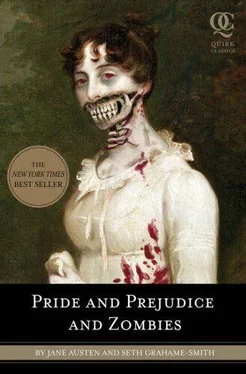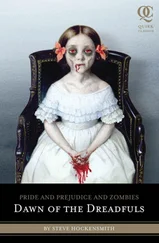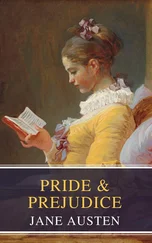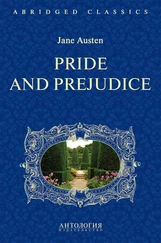When the ladies returned to the drawing-room, there was little to be done but to hear Lady Catherine talk of her attempts to create a serum, which would slow-or even reverse-the effects of the strange plague. Elizabeth was surprised to learn that her ladyship was thus engaged, for trifling in plague cures was considered the last refuge of the naïve. The greatest minds in England had been vexed by the same pursuit for five-and-fifty years. She inquired into Charlotte’s domestic concerns familiarly and minutely, and gave her a great deal of advice as to the management of them all; and told her how everything ought to be regulated in so small a family as hers. Elizabeth found that nothing was beneath this great lady’s attention, which could furnish her with an occasion of dictating to others. In the intervals of her discourse with Mrs. Collins, she addressed a variety of questions to Maria and Elizabeth, but especially to the latter, of whose connections she knew the least.
“Mr. Collins tells me that you are schooled in the deadly arts, Miss Bennet.”
“I am, though not to half the level of proficiency your Ladyship has attained.”
“Oh! Then-some time or other I shall be happy to see you spar with one of my ninjas. Are your sisters likewise trained?”
“They are.”
“I assume you were schooled in Japan?”
“No, your ladyship. In China.”
“China? Are those monks still selling their clumsy kung fu to the English? I take it you mean Shaolin?”
“Yes, your ladyship; under Master Liu.”
“Well, I suppose you had no opportunity. Had your father more means, he should have taken you to Kyoto.”
“My mother would have had no objection, but my father hates Japan.”
“Have your ninjas left you?”
“We never had any ninjas.”
“No ninjas! How was that possible? Five daughters brought up at home without any ninjas! I never heard of such a thing. Your mother must have been quite a slave to your safety.”
Elizabeth could hardly help smiling as she assured her that had not been the case.
“Then, who protected you when you saw your first combat? Without ninjas, you must have been quite a sorry spectacle indeed.”
“Compared with some families, I believe we were; but such was our desire to prevail, and our affection for each other, that we had no trouble vanquishing even our earliest opponents.”
“If I had known your mother, I should have advised her most strenuously to engage a team of ninjas. I always say that nothing is to be done in education without steady and regular instruction. Had my own daughter been blessed with a more suitable constitution, I should have sent her away the best dojos in Japan at the age of four. Are any of your younger sisters out, Miss Bennet?”
“Yes, ma’am, all.”
“All! What, all five out at once? Very odd! And you only the second. The younger ones out before the elder ones are married! Your younger sisters must be very young?”
“Yes, my youngest is not sixteen. Perhaps she is full young to be much in company. But really, ma’am, I think it would be very hard upon younger sisters, that they should not have their share of society and amusement, because the elder may not have the means or inclination to marry early. The last-born has as good a right to the pleasures of youth at the first. And to be kept back on such a motive! I think it would not be very likely to promote sisterly affection or delicacy of mind.”
“Upon my word,” said her ladyship, “you give your opinion very decidedly for so young a person. Pray, what is your age?”
“With three younger sisters grown up,” replied Elizabeth, smiling, “your ladyship can hardly expect me to own it.”
Lady Catherine seemed quite astonished at not receiving a direct answer; and Elizabeth suspected herself to be the first creature who had ever dared to trifle with so much dignified impertinence.
“You cannot be more than twenty, I am sure, therefore you need not conceal your age.”
“I am not one-and-twenty.”
When the gentlemen had joined them, and tea was over, the card-tables were placed. Lady Catherine, Sir William, and Mr. and Mrs. Collins sat down to Crypt and Coffin; and as Miss de Bourgh chose to play Whip the Vicar, Elizabeth and Maria had the honour of assisting Mrs. Jenkinson to make up her party. Their table was superlatively stupid. Scarcely a syllable was uttered that did not relate to the game, except when Mrs. Jenkinson expressed her fears of Miss de Bourgh’s being too hot or too cold, or having too much or too little light. A great deal more passed at the other table. Lady Catherine was generally speaking-stating the mistakes of the three others, or relating some anecdote of herself. Mr. Collins was employed in agreeing to everything her ladyship said, thanking her for every empty crypt he won, and apologising if he thought he won too many.
After drooling a third cup of tea onto her lap, Charlotte stood to excuse herself from the other table, clutching her stomach and wearing a rather pained expression. “I beg ya-oar pahdun, ya-oar wadyship.” Lady Catherine gave no acknowledgment, and Mr. Collins and Sir William were too engrossed in their game to notice what happened next.
Elizabeth watched Charlotte bow slightly, and then limp to the furthest corner of the room, where she lifted the bottom of her gown and bent her knees into a squat. Elizabeth immediately excused herself, rose, and (taking care not to draw attention) grabbed Charlotte by the arm and escorted her to the toilette, where she watched her stricken friend suffer through a quarter-hour of a sickness so severe that decorum prevents its description in these pages.
The tables were shortly after broken up, the carriage was offered to Mrs. Collins, gratefully accepted, and immediately ordered. The party then gathered round the fire to hear Lady Catherine determine what weather they were to have on the morrow. From these instructions they were summoned by the arrival of the coach; and with many speeches of thankfulness on Mr. Collins’s side and as many bows on Sir William’s they departed. As soon as they had driven from the door, Elizabeth was called on by her cousin to give her opinion of all that she had seen at Rosings, which, for Charlotte’s sake, she made more favourable than it really was. “Lady Catherine the Great” had been a disappointment in every sense, and Elizabeth could not forgive the slight against her temple and master.
SIR WILLIAM STAYED only a week at Hunsford, but his visit was long enough to convince him of his daughter’s being most comfortably settled. Mr. Collins devoted his mornings to driving Sir William out in his gig, and showing him the country; but when he went away, the whole family returned to their usual employments.
Now and then they were honoured with a call from Lady Catherine, and nothing escaped her observation during these visits. She examined into their employments, looked at their work, and advised them to do it differently; found fault with the arrangement of the furniture; or detected the housemaid in negligence; and if she accepted any refreshment, seemed to do it only for the sake of finding out that Mrs. Collins’s joints of meat were too large for her family.
Elizabeth soon perceived, that though this great lady was no longer engaged in the daily defense of her country, she was a most active magistrate in her own parish, the minutest concerns of which were carried to her by Mr. Collins; and whenever any of the cottagers were disposed to be quarrelsome, discontented, or too poor, she sallied forth into the village to implore them to settle their differences, or failing that, wielding her still-mighty blade to settle them herself.
The entertainment of dining at Rosings was repeated about twice a week; and, allowing for the loss of Sir William, and there being only one card-table in the evening, every such entertainment was the counterpart of the first. On one such occasion, Elizabeth was solicited to spar with several of her ladyship’s ninjas for the amusement of the party.
Читать дальше












